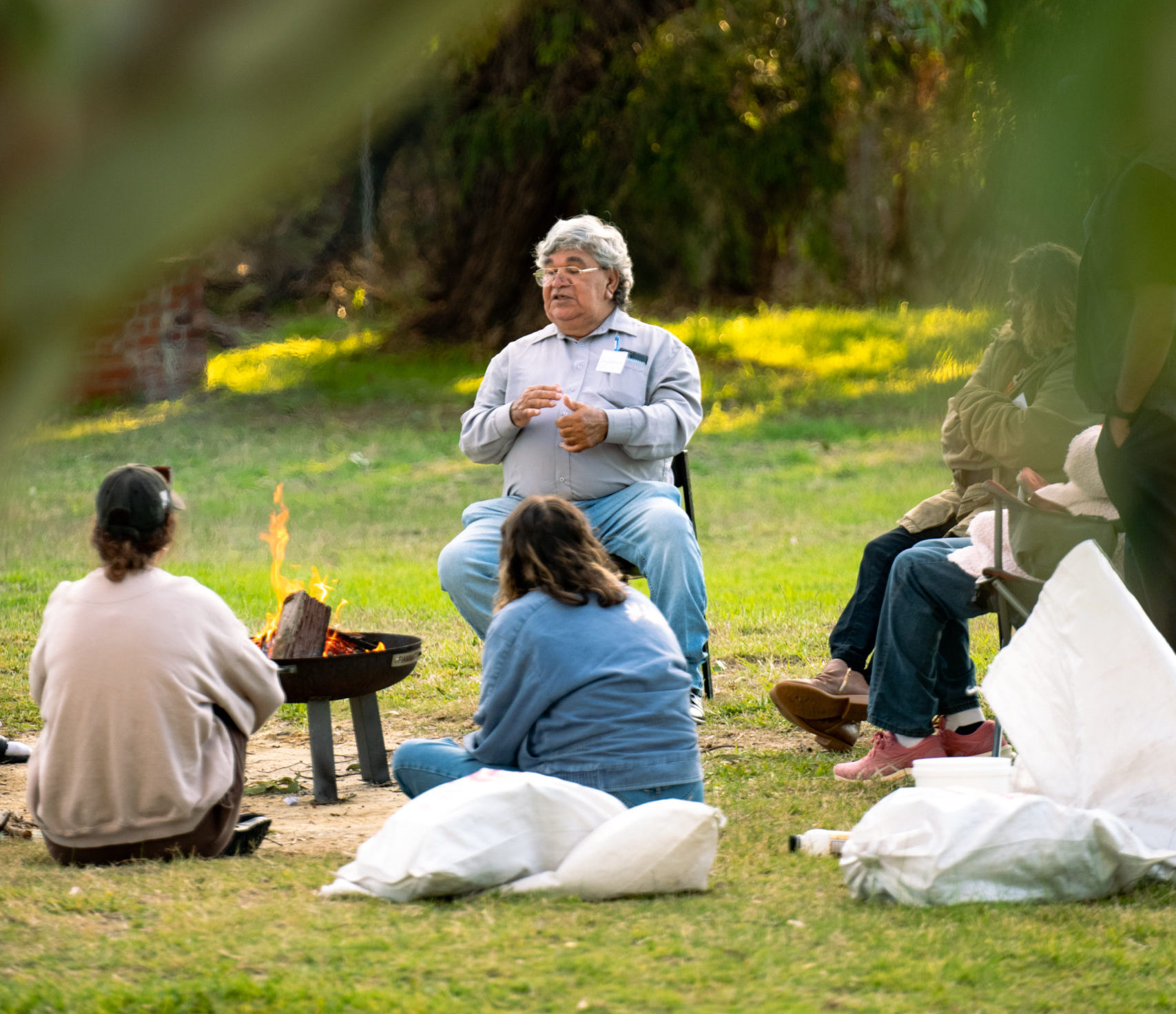The work of the Looking Forward Team started back in 2011 with the Looking Forward Project. The success of the Looking Forward Project (2011-2015) then led on to the Looking Forward Moving Forward Project (2017-2022). Over the course of 10 years, Dr Michael Wright and 22 Nyoongar Elders have passionately worked with 10 mainstream organisations resulting in many powerful stories of change, both for the Elders, and for the partner services and peak bodies.
The Allawah! Burdiyas! (Look Out! Elders are speaking!) Call to Action Community Conference was the culmination of the work of the Elders; an opportunity to reflect and celebrate. But as the work drew to close in late 2022, the Elders wanted to know that their hard work would continue beyond the life of the project. The Elders wanted to make sure that this way of working, in partnership and in relationship with Community, will continue to make systemic change. And so the idea for a Call to Action was born.
Support the Call to Action
We invite you to read through this page, and if you are new to our work, explore the other pages on our website. If you support the “Call to Action”, please pledge your commitment via the sign up link at the bottom of this page.

Call to Action: Making a commitment
During a fireside message stick ceremony on Tuesday 31st, Nyoongar Elders invited government and service officials to commit to action the Looking Forward Moving Forward recommendations and ensure that their work would continue in partnership with the Elders.
Actions speak louder than words. Work together and walk together.
1. There is a need for policy and guidelines to be developed to ensure an Aboriginal voice is included, heard and acted on.
Being led and held by the Elders will ensure an enduring commitment to cultural practice and security is embedded in service design and implementation.
2. Government and services must be accountable for their commitment to cultural security. Their actions should clearly demonstrate how they value the knowledge, expertise and leadership of Elders, Burdiya to Burdiya (Boss to Boss).
3. To demonstrate such commitment, the Elders expect a written response from Government and Service Managers that invites their engagement, within the coming six months, to work with them in ways that acknowledge their expertise, knowledge, and leadership.
4. An expectation that such commitment would ensure:
a. The recruitment of Aboriginal people to Executive positions and on agency Boards,
b. More secure and long-term employment for Aboriginal staff, including ongoing professional support and development, resources and funding,
c. An Aboriginal role in related staff recruitment and selection, and
d. Clear plan to decolonise ways of working with First Nations Australians.
An effective plan must be resourced and sustained long-term, with dedicated funding allocation.
5. Government and non-Government sectors need to reach out and accept the knowledge and expertise of the Elders. It may include coordinating and funding an annual Elders conference, establishing, supporting and resourcing Elder Circles, and directing employees to actively build relationships and engage regularly (minimum 3 monthly) with Elders.
6. Proactive engagement with Elders means listening to and acting on Elders’ advice. Engagement and action, Burdiya to Burdiya (Boss to Boss,) is both necessary and expected and must be utilised by senior staff. Working Burdiya to Burdiya sends a clear message of respectful engagement and commitment to other employees.
7. A critical starting point for an empowered Aboriginal Voice is for Government and non-Government services to accept and support the Uluru Statement. The Elders state that this demands an approach that is relational and reciprocal, a two-way learning.
8. The Elders involved in the Looking Forward Project have focused on the Mental Health and Drug and Alcohol sectors. However, other sectors can greatly benefit from the learnings and findings from project. Critically, ensuring access to Trauma Informed Care is essential in addressing the impact of Colonisation experienced by Aboriginal people.
9. Effective action means working with current Elders, and also initiating succession planning to support and develop the next generation of Elders. It is critical to find ways and resources to bring Elders and youth together.
10. Knowledge gained through direct lived experience is immensely invaluable. The individual and combined knowledge of the Elders’ lived experience is impressive. Elders expect that their knowledge and the knowledge and experiences of the community must form a critical part of the basis of action that is relevant to Aboriginal people. Their knowledge and expertise should be listened to, heard and acted on.
Download PDF versionLooking Forward Project Resources
Want to know how to bring change and more inclusiveness within your organisation? Download our poster
Access Looking Forward Moving Forward project resources including reports
Learn about the project's methods that have been developed over the past 10 years with Nyoongar Elders
If you support the “Call to Action”, please pledge your commitment by signing up here
"Why don’t we all work together and make the change together and tell the truth together, because truth is very important to Aboriginal people. We need to stand up and learn from each other and tell the truth to each other."
- Elder, during message stick ceremony, 2022